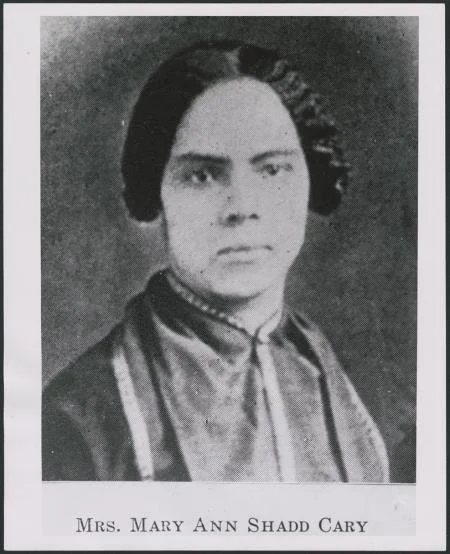Mary Ann Shadd Cary: A Pioneer of Black-Owned Media and Entrepreneurship
Mary Ann Shadd Cary. Library and Archives Canada,
C-029977. Public Domain.
Some legacies are so powerful they continue to open doors long after their time. For Mary Ann Shadd Cary (1823–1893) to be Black and a woman, in the mid-19th century, meant that your opportunities were sharply limited. And yet she challenged every barrier, redefining what it meant to be an entrepreneur, an educator, and a community leader. As the North America’s first Black woman newspaper publisher and one of the few Black women entrepreneurs of her time, Shadd Cary built a foundation that still shapes our understanding of Black media and entrepreneurship today.
At a moment when Black voices were largely excluded from mainstream media, the existence of a Black-owned newspaper was revolutionary. Shadd Cary’s newspaper, The Provincial Freeman, launched in 1853 in Ontario, Canada, provided not just news but a platform where the stories, concerns, and aspirations of Black communities could be written, circulated, and debated on their own terms. She used her platform to advocate for abolition, women’s rights, and self-reliance, messages that were considered radical in her day but became foundational ideas in Black liberation movements.
Equally monumental was her role as an entrepreneur. In an era when women were discouraged from entering business, and when Black communities faced systemic restrictions on property ownership, education, and professional advancement, Shadd Cary defied all the odds. She raised funds, managed operations, edited articles, and oversaw the distribution of her paper across Canada and the United States. Her newspaper provided practical information for newly arrived Black immigrants, advocated for abolition, and created space for women’s voices in public life.
Her entrepreneurship was not limited to publishing. She worked as an educator, opened a school for Black children in Windsor, and later pursued a law degree, becoming one of the first Black women in the United States to do so.
Shadd Cary’s legacy is not only about her accomplishments, but about the doors she opened for others. By insisting that Black communities could and should tell their own stories, she anticipated movements in Black-owned media, civil rights, and feminism that would unfold long after her time. Her work was both pioneering and deeply personal. “I’m opening the door for you, for Black women,” she declared, “and I’m proud that I’m doing that and I’m trying to create a space for you to have a voice.”
More than a century after her passing, Shadd Cary continues to inspire conversations about why Black-owned media matters. Her entrepreneurial courage serves as a reminder that telling one’s own story is as vital to progress as securing capital, policy reform, or legal rights. In recognition of this legacy, Carleton University will launch a lecture series in her honor on October 6, ensuring that her commitment to education, entrepreneurship, and justice continues to inspire future generations.

